A meeting of the Russian-Indonesian Intergovernmental Commission was held last week in Jakarta at the Ministerial level, led by Russian First Deputy Prime Minister Denis Manturov. The meetings had a wide-ranging agenda, including the proposed free trade agreement, inter-banking, energy, and industrial and agricultural developments.
Indonesia is a major Southeast Asian economy with a population of 281 million, a GDP (PPP) of US$4.98 trillion and a 2025 expected GDP growth rate of 5%, driven by domestic demand and government initiatives. It is a member of the ASEAN bloc and a full member of BRICS. Bilateral trade with Russia is growing and reached US$4.3 billion in 2024 – leaving plenty of room for bilateral trade growth opportunities.
Russia-Indonesia Free Trade Agreement
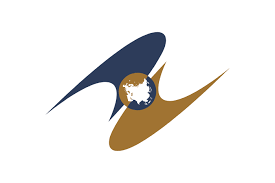
Both sides are expecting the process of signing a deal on a free trade zone between the Eurasian Economic Union (EAEU) and Indonesia to speed up amid the United States’ decision to boost tariffs for its foreign trade partners, according to Russian First Deputy Prime Minister Denis Manturov. He said that “The talks are in progress, and I hope the agreement will be signed before the end of this year. The United States’ initiative to considerably increase foreign trade tariffs, it may give an additional impetus to speed up the signing of the deal.” Russian Deputy Economic Development Minister Vladimir Ilyichev said in February that the EAEU talks with Indonesia are scheduled “to sign an agreement on free trade in goods in 2025, or to at least complete the talks.”
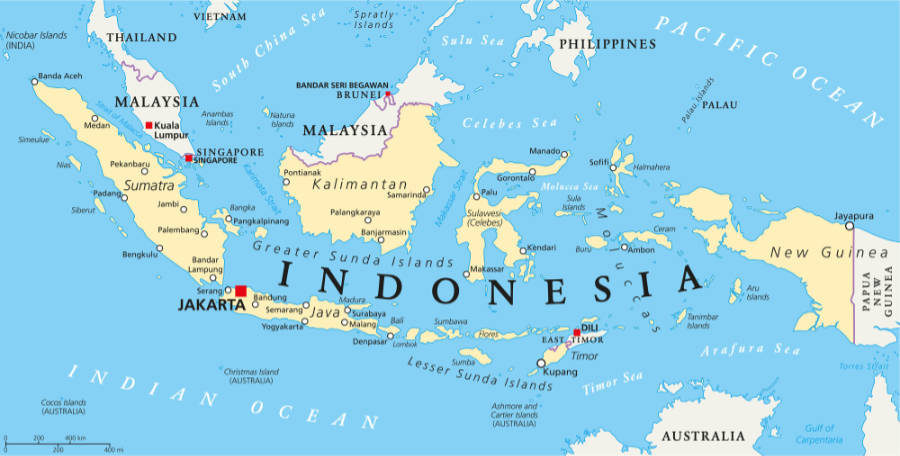
Interbank Relations
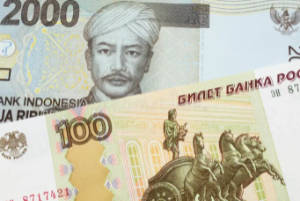
Manturov said that establishing direct settlements between Russian and Indonesian banks is currently being addressed by both countries’ regulators, saying that “Given current realities, I must emphasize the importance of uninterrupted mutual settlements. The key task today concerns expanding direct correspondent banking relationships between our countries’ financial institutions.”
Russian-Indonesian trade turnover over the past five years has grown more than 80% with Indonesia becoming one of Russia’s top three trade partners in ASEAN last year.
Energy

Russia’s Deputy Energy Minister Roman Marshavin said during the Russia and Indonesia Energy Dialogue that Russia and Indonesia are considering joint projects in the area of renewable energy, developing hydrocarbon deposits, and nuclear energy. A “Course for Expansion” discussion was held involving representatives from Rosatom state nuclear energy corporation, the Institute of Oil and Gas Initiatives, the Indonesian authorities and its domestic energy companies. Marshavin said that ‘Russia and Indonesia have significant resources and potential for mutually beneficial co-operation.’
Indonesia has coal and petroleum industries, and imports refined and crude petroleum.
Russian-Indonesian cooperation in the energy sector may include joint projects in geological exploration, production and processing of hydrocarbons, with Manturov saying that “We see potential for expanding cooperation in the energy sector, including both the supply of fossil fuels in demand in Indonesia and joint investment in the geological exploration, production and processing of hydrocarbons, adding that Russia is “ready to share expertise and advanced solutions to support Indonesia’s plans for developing its own nuclear energy industry.”
Industrial Cooperation

Manturov also said that Russia could increase its exports to Indonesia through timber and metallurgical products, adding that “Diversifying Russian exports to Indonesia is important. We are already seeing positive developments here. Alongside energy products, we’re increasing exports of food and mineral fertilizers. In 2023, Russian wheat shipments resumed. We see opportunities to develop exports of timber and metallurgical products.”
Manturov also mentioned plans by Russian logistics companies to develop port infrastructure in the region. “We’re paying special attention to transport cooperation, focusing on economically efficient container routes and integrated multimodal solutions. Major Russian logistics operators are also developing investment projects for port infrastructure development.”
FESCO have also announced plans for its first vessel call at Indonesia’s Jakarta port this month as part of its Vietnam-Malaysia line. Delo Group Board Chairman Sergei Shishkarev spoke about plans to create a dedicated palm oil import terminal in Novorossiysk. Indonesia is the world’s leading producer of palm oil.
Manturov also said that “There is mutual interest in joint shipbuilding projects, with Russian companies ready to offer expertise in hovercraft and hydrofoil vessels. The key potential lies in ship component manufacturing, vessel design and construction, particularly hovercraft and hydrofoils, as well as innovative electric-powered vessels.”
Halal Certification
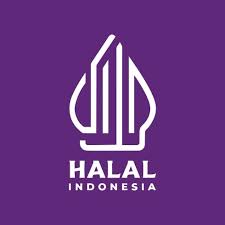
Nazary Skrypnik, Head of the Federal Accreditation Service, and Ahmad Haikal Hasan, Head of the Halal Product Quality Assurance Agency of the Republic of Indonesia (BPJPH), signed a Memorandum of Understanding on Halal quality infrastructure. ‘The Memorandum will be the basis for further cooperation on the issues of recognising the accreditation of Russian Halal certification bodies and reducing trade barriers between our countries,’ said Nazary Skrypnik.
The ability to verify Russian product quality under the halal system is linked in particular to expanding supplies of livestock products, and other products to the Indonesian market.
Agricultural Relations

Russia’s grain exports to Indonesia grew 22% in volume terms in 2024, with further development of bilateral agricultural cooperation expected to include both grain and livestock products, with Manturov stating that “Russia and Indonesia have significant potential to develop bilateral trade in agricultural products. Our country is the world’s leading wheat exporter, while Indonesia is one of the largest global buyers. This creates a foundation for mutually beneficial cooperation.”
Wheat currently accounts for 92.3% of Russia’s trade in agricultural products with Indonesia, coriander seeds make up 2.6% and frozen fish 2.2%. Bilateral trade in agricultural products between the two countries jumped 41.4% to US$1.5 billion in 2024.
Livestock

Manturov said that work is underway to open the Indonesian market to Russian livestock producers, adding that “In March this year, Indonesian representatives visited Russia to inspect beef production facilities. We currently await Indonesia’s position following this visit.”
Last week, Russian Deputy Agriculture Minister Maxim Borovoi and Russian Export Center head Veronika Nikishina had discussed prospects for Russian beef producers entering the Indonesian market. Nikishina linked potential agricultural export growth to plans for signing a free trade agreement between the Eurasian Economic Union (EAEU) and Indonesia. Final tariff negotiations are now underway.
Borovoi said that the two countries are discussing “increasing the volume of animal product supplies, in principal opening Indonesia’s animal products market.” Indonesia currently sets quotas for beef imports, but Russian companies cannot apply for a share of them due to their lack of certification to the country’s regulatory standards, Borovoi said. Talks are being held on launching the certification process.
Borovoi said “Our market is big, so we are prepared to meet all the demand there is. But, at the same time, competition in Indonesia is high, so our colleagues will have to work with their local partners.” Russia is also discussing exporting poultry meat, dairy products and other animal products to Indonesia.
Russia Air Base
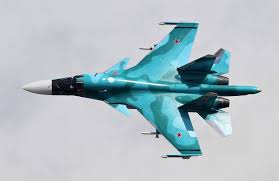
Western media reports of Russia requesting the use of a military air base in Indonesia’s eastern Papua region have proven false, with Australian Leader of the Opposition Peter Dutton admitting he ‘made a mistake’ in asking why the Australian Prime Minister did not appear to be aware of the issue. The incident, which was widely reported as Russian aggression in the Western media, can be read about here.
In fact, this fake news illustrates how Western politicians are using Russia as a political scaremongering tool in attempts to gain domestic leverage over their rivals.
Summary
Indonesia follows a non-confrontational and essentially neutral foreign policy and tends not to take sides in diplomatic or military issues that do not directly affect it. Due to its distance, trade and investment with Russia has traditionally been limited, however with changing supply chains and economic growth dynamics, the future of bilateral trade has significantly improved. Indonesia is a powerful and rapidly growing economy, with a strong and fast-growing middle-class sector.
Russia’s diverse engagement with Indonesia can only help develop this potential further as mutual trade and investment ties are explored.
Further Reading
Continue Reading





 Русский
Русский










